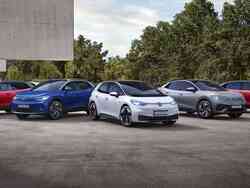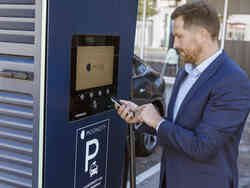
TCO comparison: electric car vs. combustion engine
To assess the economic efficiency of electric cars, it is advisable to consider the Total Cost of Ownership of the vehicle. Electric vehicles can be cheaper than comparable vehicles with a combustion engine in terms of the total operating costs. Even when the acquisition costs are higher for the electric vehicle than for the combustion engine vehicle.
Contact us
Cost advantages of electric cars
One important argument regarding costs are the state subsidies for electric mobility. The e-mobility offensive applies to motor vehicles as well as to the necessary charging infrastructure. You can find the individual funding amounts and the minimum requirements on our landing page for e-mobility subsidies.
From a tax perspective, the following benefits exist:
- No standard fuel consumption tax (NoVA)
- No engine-related insurance tax (mVSST)
- No benefit in kind means lower non-wage labour costs for the employer
- Possibility of input tax deduction
Further positive effects
One major factor from the standpoint of environmental considerations are the CO2-neutral emissions of electric vehicles. Given that the amount of the motor vehicle tax depends on the CO2 emissions of the vehicle and that this may continue to rise due to the increasing climate protection efforts by the government, positive effects on the TCO of electric vehicles can already be felt.
In addition, there are also positive effects from the individual components such as remuneration, fuel and energy consumption, maintenance, tyre management and insurance – which is why it is worth taking a closer look at these.
The adjacent graphic* illustrates the difference in savings between an electric car and a combustion engine. When the individual components for the TCO are added, this results in a price advantage in favour of the electric vehicle despite the higher acquisition costs. It should be kept in mind, however, that this is a model calculation and the price advantage may vary depending on the individual driving behaviour and location in which the vehicle is used.
Left-hand model: VW ID.3 Pro Life (70 KW)
Right-hand model: VW Golf Style TDI DSG (85 KW)
*Calculation parameters: financing product: operating leasing (incl. deduction of the state subsidy for electric models) / 48-month term / kilometres: 30,000 / B2B maintenance / fleet insurance rate (fully comprehensive insurance, third-party liability, claims processing) /
tyre dimensions according to standard tyres as per manufacturer / fuel/energy consumption according to manufacturer’s specifications / composite rate of fuel (1.3 EUR/l) and kw/h (0.30 cents) / optimum driving behaviour in optimum weather conditions.
The most important cost levers for the individual components are
Possibility of input tax deduction
For the costs incurred (financing, maintenance, tyre management fees as well as charging costs).
Lower maintenance costs
For the VW ID.3, for example, the costs are roughly 30-40% below those of a comparable combustion engine vehicle.
Lower charging costs
On the one hand, electricity is usually cheaper than fuel, and on the other hand, electric vehicles feature significantly more effective consumption than a comparable combustion engine vehicle.
Lower insurance costs
Due to the fact that the engine-related insurance tax does not apply to electric cars.
Please note: For electric vehicles, the input tax deduction is also granted for the costs associated with the electric vehicle. These include, for example, costs for the motorway Vignette, vehicle washing or parking fees.
Residual value comparison electric vs. combustion engine*:
The adjacent graphic shows you that the acquisition prices for the electric vehicles are higher than for the combustion engine models.
With the assumed term of 48 months and 30,000 km per year, the residual values in percent are almost identical for the compared models.
Please keep in mind that this is a model calculation and that it may therefore deviate from a customised and customer-specific offer.
Request your individual vehicle offer from our sales team.


